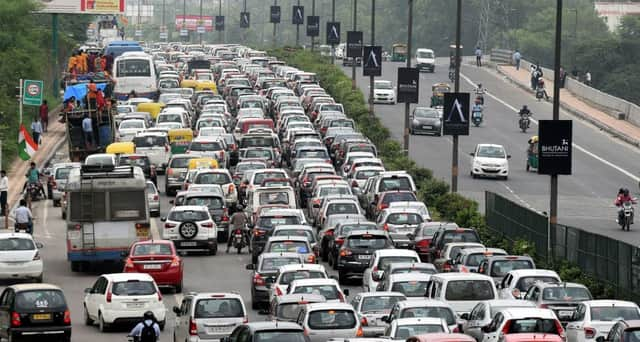Cars in India could be powered by waste from whisky distilling


The move is aimed at helping tackle toxic pollution in the Ganges river. It comes thanks to a new partnership between Edinburgh-based Celtic Renewables and the Indian company Dross Energy.
The venture will use a process developed by the Napier University spin-off that converts residues from whisky production into a sustainable new fuel, biobutanol, to power vehicles.
Advertisement
Hide AdAdvertisement
Hide AdIn a distillery, only around 10 per cent of what flows out is turned into whisky. The remainder is draff and pot ale.
Every year 1,600 million litres of pot ale and 500,000 tonnes of draff are produced by the Scotch whisky industry.
Celtic Renewables has developed a way to convert this residue into biobutanol, which can directly replace petrol and diesel.
Switching to the new fuel cuts oil consumption and carbon dioxide emissions, while also providing energy security.
The novel process also produces other sustainable chemicals such as acetone and ethanol, as well as animal feed.
The memorandum of understanding was signed at the Indian Water Summit, a government-led event centred on combating pollution in the Ganges river.
Professor Martin Tangney, founder and president of Celtic Renewables, was in Delhi to sign the deal.
He said: “The technology developed by Celtic Renewables is a game-changer for the Indian brewing and distilling industry, which has been widely criticised for dumping residue from the distilling process into the Ganges - a source of drinking water for over 400 million people.
Advertisement
Hide AdAdvertisement
Hide Ad“The Indian government has committed several billion pounds to pollution-reduction and river-rejuvenation through its dedicated arm, the National Mission for Clean Ganga, and I am proud our company will be part of the solution.”
A spokesman for Dross Energy said: “We are hugely excited to be the company to bring this ground-breaking technology to India. The technology is innovative and exciting, and we want to be the second country in the world, behind Scotland, to commercialise the process for the benefit of the environment.”
Celtic Renewables has been supported through Scottish Development International (SDI) and the Scottish Government’s Hydro Nation initiative.
Cherise Mascarenhas, head of SDI in India, said the deal will see Scotland’s world-famous reputation for whisky, clean water and innovation exported to benefit the planet while helping Celtic Renewables achieve global growth.